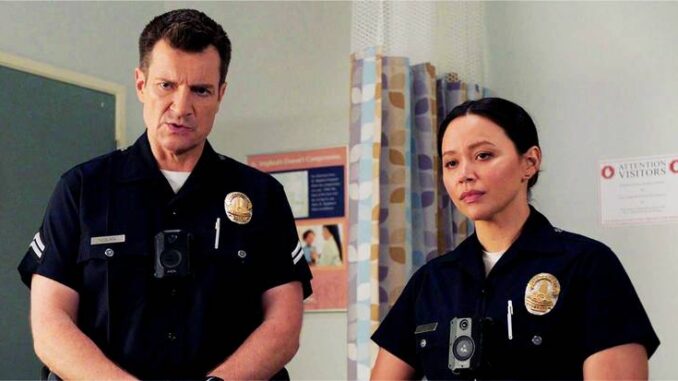
Revisiting The Rookie Pilot: A Second Take on First Impressions
First impressions are powerful things. They can color our perception of a person, a place, or, in this case, a television show. When I first watched the pilot episode of "The Rookie," I was mildly entertained. It was a decent procedural, a little cheesy perhaps, with a likable-enough protagonist. But it wasn't exactly appointment television. However, revisiting that same pilot after four seasons of character development, plot twists, and emotional investment has completely reshaped my understanding of the show and its core themes. It's no longer just a procedural; it's a nuanced exploration of second chances, the challenges of reinvention, and the bonds forged under pressure.
On initial viewing, John Nolan, the titular "rookie," seemed like a slightly naive but ultimately capable fish-out-of-water. He was a 40-year-old divorcé, a former construction magnate, thrown into the cutthroat world of the LAPD. His age was the source of the main conflict – the prejudice he faced, the physical limitations he occasionally wrestled with. But revisiting the pilot after knowing the man he becomes, the weight of his past failures and the unwavering dedication he cultivates, paints a far richer picture. The awkwardness, the tentative steps, and the slightly forced optimism are no longer just character traits; they are symptoms of a man desperately trying to reinvent himself, to prove he's not just a mid-life crisis walking, but a valuable asset.
Furthermore, my perception of the other characters was similarly skewed. Take Sergeant Wade Grey, initially presented as the gruff, skeptical superior, a walking embodiment of institutional cynicism. On first viewing, he seemed solely focused on breaking Nolan, on proving him unfit for the job. But re-watching the pilot, I can now see the subtle glimmers of respect, the calculated risk he takes in giving Nolan a chance. Understanding his own backstory, his own past traumas, allows me to interpret his actions not as simple antagonism, but as a tough-love mentorship, a desire to ensure Nolan is truly prepared for the brutal realities of the job. The pilot, viewed through the lens of subsequent seasons, becomes a breeding ground for the complex, evolving relationships that define the show's heart.
The cases presented in the pilot, while engaging in their own right, also gain a new layer of significance with hindsight. What initially seemed like typical "crime-of-the-week" scenarios now feel like foreshadowing, hinting at the recurring themes that will dominate the series. The incident with the armed robbery, for example, is not just a thrilling action sequence; it's a microcosm of the moral gray areas police officers are forced to navigate, the split-second decisions that can have life-altering consequences. Knowing Nolan's unwavering commitment to doing the right thing, even when it's the hardest choice, makes watching him grapple with these situations in the pilot all the more poignant.
Ultimately, revisiting the pilot of "The Rookie" has been a lesson in the power of context. What initially appeared to be a straightforward procedural drama has, through careful character development and consistently compelling storylines, transformed into something far more profound. It's a testament to the show's creators and writers that they were able to lay the groundwork for such a rich and engaging narrative, even in the seemingly simple framework of the pilot episode. It's a reminder that first impressions, while important, are rarely the whole story, and that sometimes, the greatest rewards come from revisiting the past with a new perspective. The pilot, once just an introduction, now stands as a testament to the journey, a reminder of where everyone started, and a powerful foreshadowing of the challenges and triumphs that lie ahead.